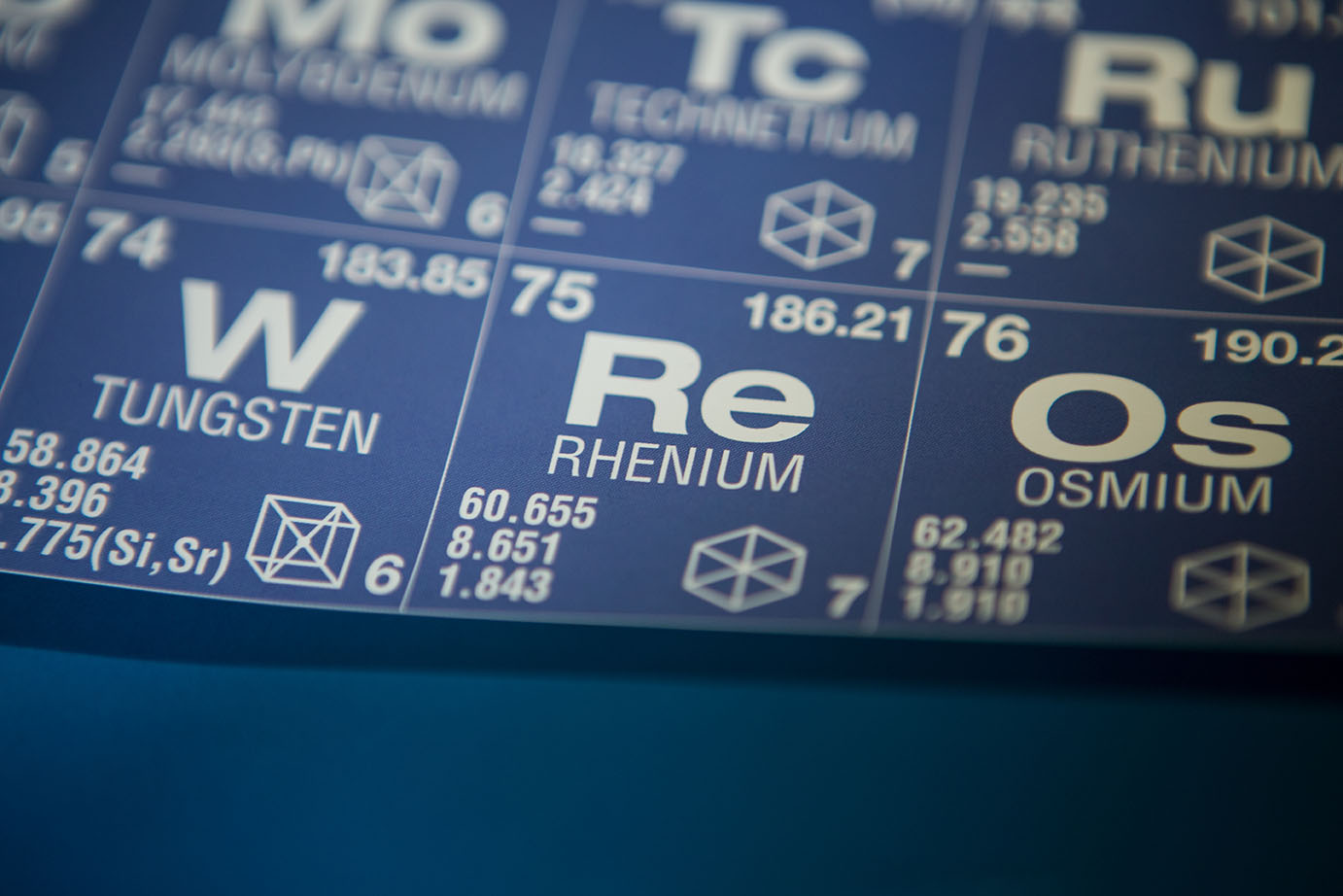

Rhenium is a chemical element with the symbol Re and atomic number 75. It is a very rare, silvery-white, heavy metal. Rhenium is the heaviest member of the platinum group metals.
Rhenium is a very strong and hard metal. It has a melting point of 3180°C and a boiling point of 5627°C. Rhenium is also very resistant to corrosion.
Rhenium is found in very small amounts in the Earth's crust. It is extracted from the ores of molybdenum and copper.
Rhenium is used in a variety of applications, including:
Rhenium is a rare element, and it is not found in large quantities in nature.

Noun:
The word "rhenium" comes from the Latin name for the Rhine River, "Rhenus".
The first recorded use of the word "rhenium" in English was in 1925.
The word "rhenium" is a relatively new word, as the element was only discovered in 1925. It is named after the Rhine River, which flows through Germany and the Netherlands.
What is rhenium used for?
Question:
Explain the significance of rhenium in modern technology and its applications in various industries. Provide an example of how rhenium is used in a specific technological application.
Answer:
Rhenium holds crucial importance in modern technology due to its exceptional properties, making it a valuable element in various industrial applications. Rhenium boasts one of the highest melting points of all elements and is highly resistant to heat and wear.
One significant application of rhenium is in the aerospace industry, where it is used to create superalloys. These superalloys are vital components in jet engines and gas turbines, as they can withstand extremely high temperatures and mechanical stress. Rhenium enhances the performance and efficiency of these engines, contributing to safer and more fuel-efficient air travel.
For instance, rhenium-based superalloys are used in turbine blades, which are subjected to intense heat and mechanical forces in jet engines. These alloys retain their strength and structural integrity at high temperatures, allowing engines to operate efficiently and reliably.
Beyond aerospace, rhenium finds use in the electronics and petrochemical industries. Its remarkable properties make it valuable in electrical contacts and catalysts that facilitate chemical reactions.
In conclusion, rhenium's exceptional properties make it a critical element in various industries. Its application in aerospace, particularly in creating superalloys for jet engines, illustrates how rhenium contributes to technological advancements that impact our daily lives and enhance the performance of essential systems like air transportation.
Address
Developing Experts Limited
Exchange Street Buildings
35-37 Exchange Street
Norwich
NR2 1DP
UK
Phone
01603 273515
Email
hello@developingexperts.com
Copyright 2025 Developing Experts, All rights reserved.